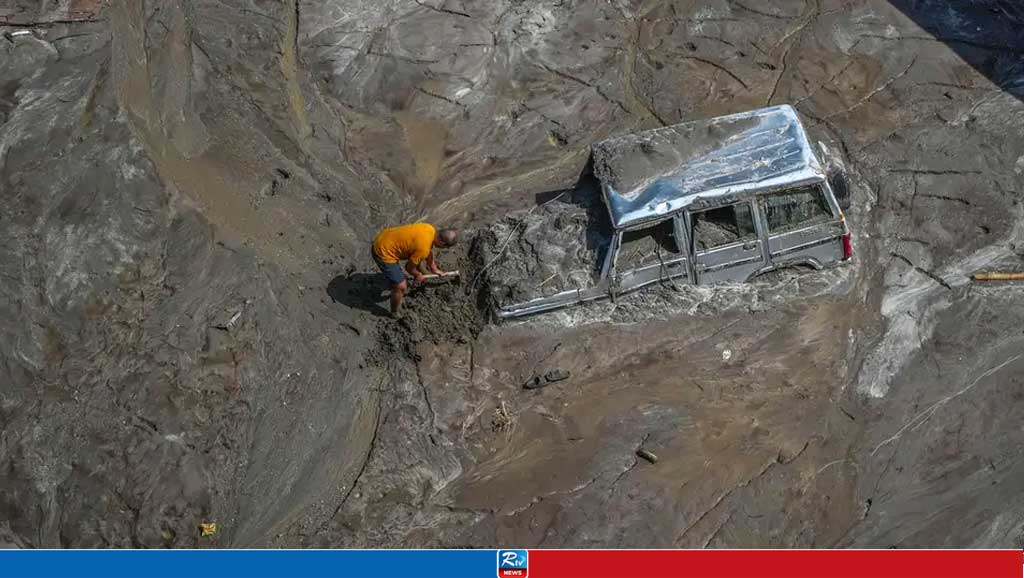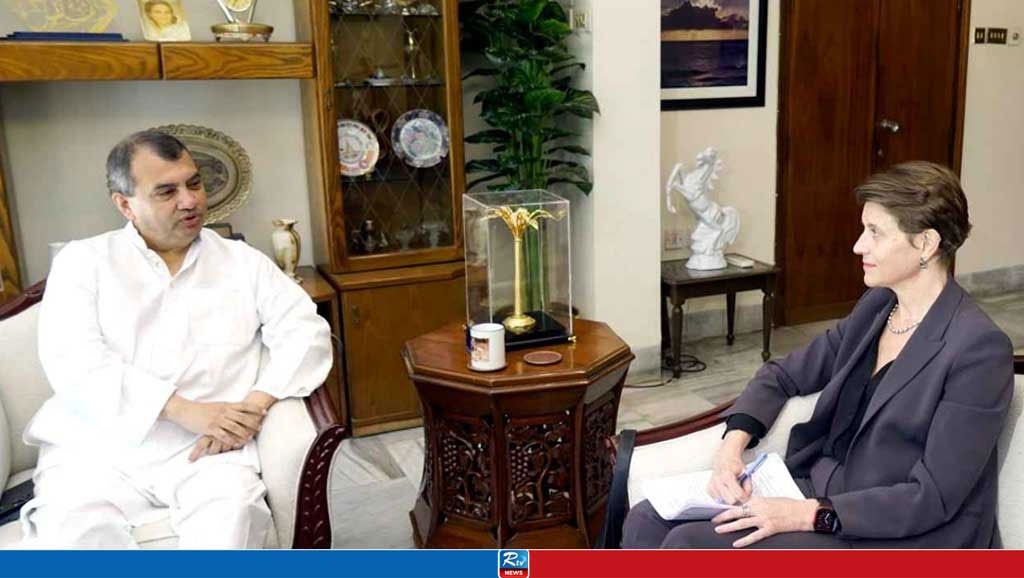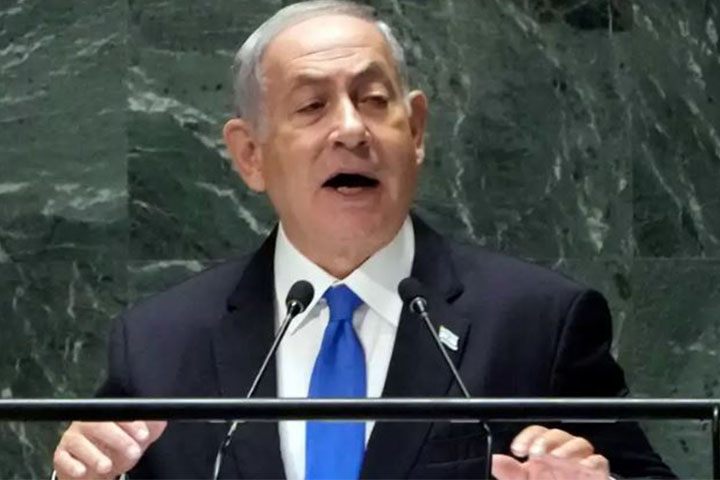Dramatic forest loss due to farming, climate change: report
Every day the planet loses more and more trees to deforestation, according to a new study. But why are forests so important for us anyway?
More than half the habitable land on Earth was once covered in lush forest. Humans have been chopping away at it for 10,000 years, but in the past century, deforestation has accelerated dramatically.
Since 1900, an area the size of the United States has been stripped of forest. That's the same amount that was lost in the previous 9,000 years, according to online science platform Our World in Data. And losses are ongoing.
Every week in 2023, the planet lost tropical forest cover the size of Singapore, according to a new Global Forest Watch study published by research organization World Resources Institute (WRI). That came to a total of 3.7 million hectares (9.2 million acres) in 2023, although forest loss dropped slightly compared to 2022.
Usually forests are cut down to clear land for agriculture — mainly beef, soy and palm oil — or for timber. Others burn down as climate change supercharges wildfires. Record-breaking fires in Canada led to a fivefold increase in forest loss last year.
If forests continue to shrink it may eventually leave the planet unlivable for humans. Most countries have pledged to stop forest loss by 2030 but are nowhere near the levels needed to achieve this.
"The world took two steps forward, two steps back when it comes to this past year's forest loss," Mikaela Weisse, Global Forest Watch Director at WRI, said in a statement.
Countries such as Colombia and Brazil have reduced rates of tropical forest loss dramatically, but their gains were largely wiped out by huge increases in countries such as Bolivia, Laos and Nicaragua, according to the study data researched by the University of Maryland.
But why are forests so important?
Healthy forests ensure humans have enough air to breathe by absorbing carbon dioxide and producing oxygen.
Forests also recharge our drinking water and act as natural filters. Their root systems absorb excess nutrients and pollutants from rainfall runoff before it enters aquifers, keeping water safe to consume.
Tree roots protect against landslides by holding the soil together, combat flooding after heavy rainfall by aiding water absorption, and in the case of mangrove forests, act as a coastal bulwark during storms by buffering surges.
Forests have a role to play in ensuring we have enough food to eat, too, either through directly harboring fruit and wild animals that people eat, or by supporting agriculture through sheltering pollinators and supplying water.
They directly sustain the livelihoods of 1.6 billion people, providing timber, fuel, food, jobs and shelter. About 300 million people live in forests.
As well as human lives, forests support more than 80% of biodiversity on land, including 80% of amphibians, and 75% of birds. Tropical rainforests are especially heavy lifters, holding more than half the world's vertebrate species.
When tropical rainforests are cut down, as many as 100 species are made extinct each day, according to international conservation NGO WWF. Biodiversity is fundamental to the ongoing survival of humanity.
How are forests and climate change linked?
Forests are essential to slowing climate change. Modeling by UN science body, the Intergovernmental Panel on Climate Change (IPCC), showed that stopping deforestation and restoring trees is fundamental to keeping planetary heating under 2 degrees Celsius (3.6 Fahrenheit). That's the limit agreed by world leaders in Paris in 2015 to stop the worst effects of the climate crisis.
This is because forests are the largest carbon sinks on the planet alongside oceans and soil. They hold vast quantities of climate-warming gases which are largely released by burning fossil fuels. But when forests are cleared, CO2 is released back into the atmosphere, accelerating climate change.
If deforestation is stopped and some 350 million hectares of destroyed and degraded forests are restored, they could sequester 5 gigatons of carbon dioxide each year. That's roughly what the United States emits each year.
But it's not just their role in regulating CO2 that affects the atmosphere. Forest also helps to create clouds, which reflect sunlight back into space. They act as a natural air conditioner too when they release moisture into the air through evaporation. Even the shape of tree canopies plays a complex role in wind movements and weather systems.
A recent study found forests reduced temperatures in the eastern United States by 1 degree Celsius to 2 degrees Celsius (1.8 degrees Fahrenheit to 3.6 degrees Fahrenheit) each year.
What can be done to save forests?
Reversals in deforestation are possible. In 2023, Brazil reduced primary forest loss by 36%, while losses dipped 49% in Colombia, compared to the previous year, partly thanks to political action.
Colombia's gains have largely been driven by a peace process within the country, with negotiations among different armed groups explicitly prioritizing forest conservation.
Brazilian president Luiz Inacio Lula da Silva has made deforestation a policy goal through strengthened law enforcement, revoking environmentally destructive policies, and recognizing indigenous territories. This was in direct opposition to his predecessor Jair Bolsonaro, whose policies helped drive forest loss in pursuit of economic development.
"Countries can cut rates of forest loss when they muster the political will to do so. But we also know that progress can be reversed when political winds change," said Rod Taylor, WRI's Global Forests Director, in a press call.
To counter this yo-yo effect, Taylor said, "the global economy needs to increase the value of standing forests relative to the short-term gains on offer from clearing forests to make way for farms, mines or new roads."
How else can forests be protected?
Some ways to do this include global initiatives that place a value on forests based on how much carbon they can store. There are also nascent efforts to directly pay residents and landowners who help preserve forested areas.
Regulations can help tackle deforestation by focusing on supply chains. The European Union's new Deforestation Regulation, for example, will push companies to ensure imports of cattle, cocoa, coffee, palm oil, rubber, soy and wood items don't come from newly deforested land.
Supporting Indigenous communities in healthy forests can help protect against deforestation. About 36% of remaining intact forests are on Indigenous lands, according to the World Bank, and they are shown to be adept at preserving biodiversity.
Restoring cleared forests will be integral to achieving the Paris Agreement, and many countries are even looking at afforestation — the practice of establishing a forest where there previously was none.
"Bold global mechanisms and unique local initiatives together are both needed to achieve enduring reductions in deforestation across all tropical countries," said forest expert Taylor.
05 Apr 2024,10:08
















 Live Tv
Live Tv









